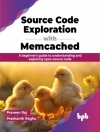The book constitutes proceedings of the International Conference on Intelligent Systems and Human-Machine Collaboration 2022. The papers consist of research from different domains of human-machine interaction, computer engineering like quantum computational intelligence, big data analytics, the Internet of things, etc. The book includes significant contributions from academia and industry dealing with human-machine interaction both from the theoretical development and the application point of view. It also brings out research articles in interdisciplinary platforms applying human-machine interaction. The book is useful to researchers and practitioners alike.
Tabla de materias
Landmark identification from low-resolution real-time image pose estimation.- BLUEBOT – A Bluetooth Controlled Robot for Deciding Human Intervention based on the Environment check.- Nirbhaya Naari: An Artificial Intelligence tool for detection of crime against Women.- A Clinical Decision Support System Using Machine Learning To Forecast The Risk Of Chronic Pulmonary Disease And Anthracosis.- Pre-Eclampsia Risk Factors Association with Cardiovascular Disease Prediction and Diagnosing Using Machine Learning.- A Low Resource Machine Learning Approach for Prediction of Dressler Syndrome.- Analysis of Twitter Data for Business Intelligence.- Detection and Classification of Cyber Threats in Tweets towards Prevention.- Artificial Neural Network Design for CMOS NAND Gate Using Sigmoid Function.- A Pioneer Image Steganography Method Using The SOD Algorithm.
Sobre el autor
Siddhartha Bhattacharyya [FRSA (UK), FIET (UK), FIEI (I), FIETE, LFOSI, SMIEEE, SMACM, SMAAIA, SMIETI] did his Bachelor’s in Physics, Bachelor’s in Optics and Optoelectronics, and Master’s in Optics and Optoelectronics from the University of Calcutta, India, in 1995, 1998, and 2000, respectively. He completed his Ph.D. in Computer Science and Engineering from Jadavpur University, India, in 2008. He is a professor in the Department of Computer Science and Engineering of Christ University, Bangalore. He is a co-author of 6 books and the co-editor of 88 books and has over 400 research publications in international journals and conference proceedings to his credit. He has got two PCTs to his credit. His research areas are hybrid intelligence, pattern recognition, multimedia data processing, social networks, and quantum computing.
Mario Koeppen studied Physics at the Humboldt University of Berlin and received his Master’s degree in Solid-State Physics in 1991. He has published over150 peer-reviewed papers in conference proceedings, journals, and books and was active in the organization of various conferences as a chair or a member of the program committee, including the WSC online conference series on Soft Computing in Industrial Applications, and the HIS conference series on Hybrid Intelligent Systems. He is a founding member of the World Federation of Soft Computing and since 2016 the editor-in-chief of its Elsevier Applied Soft Computing journal. In 2006, he became a JSPS fellow at the Kyushu Institute of Technology in Japan, in 2008 a professor at the Network Design and Research Center (NDRC), and in 2013 a professor at the Graduate School of Creative Informatics of the Kyushu Institute of Technology, where he is conducting now research in the fields of soft computing, especially for multi-objective and relational optimization, digital convergence, and human-centered computing.
Debashis De is Professor Department of Computer Science and Engineering of Maulana Abul Kalam Azad University of Technology, West Bengal, India. He is Senior Member-IEEE, Fellow IETE, Life member CSI. He was awarded the prestigious Boyscast Fellowship by the Department of Science and Technology, Government of India for postdoc at Scotland, UK. He received the Endeavour Fellowship Award from 2008–2009 by DEST Australia to work at the University of Western Australia. He received the Young Scientist award both in 2005 at New Delhi and in 2011 in Istanbul, Turkey, from the International Union of Radio Science, Belgium. He established the Center of Mobile cloud computing. He is Vice-chair of Dew Computing STC of IEEE Computer Society. His research interest is cloud, Io T and Quantum Computing.
Vincenzo Piuri is a full professor at the University of Milan, Italy (since 2000), where he was also the department chair (2007-2012). He received his M.S. and Ph.D. in Computer Engineering from Politecnico di Milano, Italy. His research and industrial application interests are artificial intelligence, computational intelligence, intelligent systems, pattern analysis and recognition, machine learning, signal and image processing, biometrics, intelligent measurement systems, industrial applications, distributed processing systems, Internet of things, cloud computing, fault tolerance, application-specific digital processing architectures, and arithmetic architectures. He published innovative results in over 400 papers in international journals, international conference proceedings, books, and chapters.












